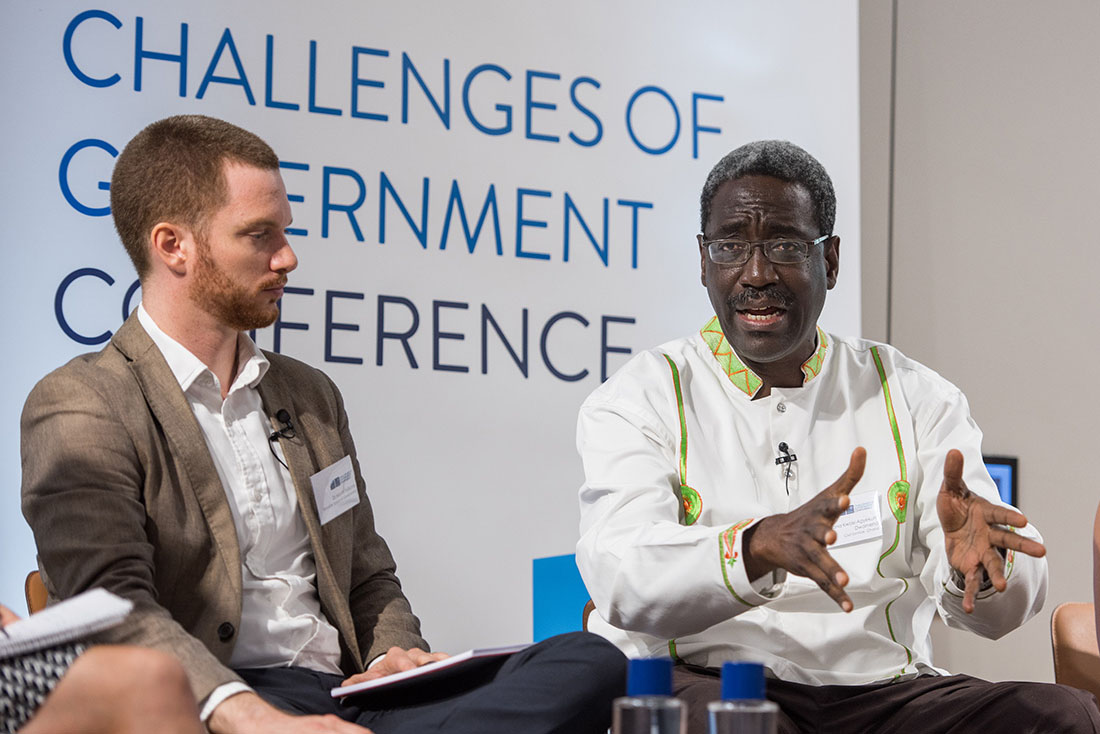Turning academic insights into practical lessons: civil service reform in Ghana
A new case study from Martin Williams demonstrates how we are bringing academic theory to life through interactive case teaching.

Martin Williams, associate professor in public management, recently brought his research to life in the classroom with a new case study, ‘Civil service reform in Ghana,’ in collaboration with Sarah McAra, senior case writer and associate director of the Case Centre on Public Leadership.
They wanted to turn Williams’ public management insights into a classroom discussion-starter, bringing them to the current and future public leaders who would need to apply them on the ground. Williams’ research focuses on issues of policy implementation, public service delivery, and bureaucratic reform, mostly in low- and middle-income countries. In particular, he has spent years working with the Ghanaian Civil Service, along with a range of co-authors, looking at the successes and challenges of their various reform programmes over time, for instance considering the factors that have led to a wide range of levels of performance across civil service organisations.
The case is set in 2014, just after Nana Agyekum-Dwamena, a career civil servant, was named Ghana’s Head of Civil Service. He was tasked with reforming the 14,000-person institution, which was widely seen to be plagued by low motivation, inefficiency, and weak performance. Agyekum-Dwamena had just been approached with an interesting opportunity: if he designed a multi-year reform programme, a development partner would have been open to funding it.
In many ways, this was a compelling offer; the Civil Service had extremely limited financial resources and strict constraints for hiring and firing, yet improving the Civil Service remained a political priority. However, Agyekum-Dwamena had seen donor-funded reform efforts fail to deliver in the past, having experienced first-hand the seven reform programmes the Civil Service had implemented since the 1980s. Beyond the administrative challenges of managing and monitoring a large donor-sponsored programme, most reform efforts had halted when funding ended or a new administration came into office. There had been small successes along the way, but few programmes were sustained over time.
With this case study, students are asked to consider what they would do in Agyekum-Dwamena’s situation: ‘Would you take the money or not? And, based on your answer, how would you design a reform programme?’ Of course, there is no correct answer. But Williams’ research helps to elucidate several questions and ideas that can help a leader in such a situation assess the dilemma and ultimately make a decision.
In the classroom discussion, what becomes apparent is that civil servant behaviour is influenced by both formal and informal practices – a key lesson from Martin’s research. Even where formal rules exist, departments and agencies throughout the civil service utilise them in different ways.
Take the example of performance reviews, an institution-wide policy. Some units were highly committed to conducting meaningful performance reviews each year; others went through the motions of the formal reviews but to no real consequence; and yet others did not do them at all. If a mere rule is not enough to bring about change, what other options are available to a manager?
Such an assessment helps the students consider what issues need to be addressed and opens a conversation about what levers are available for implementing long-lasting reform. This is just one of the many research insights that the case study illuminates in the classroom.
In this way, the case helps to take specialist research to a generalist audience, bringing it to those who will be making public policy decisions in the field.
“Cases are good to develop as part of an academic project alongside more research-oriented outputs because they force me to frame questions in a way that matters for real-life situations and policy dilemmas” says Williams. "I see cases as really valuable in getting students to apply their conceptual learning and new skills to a real-life problem. Cases are a way to help them integrate knowledge across topics, recall and apply ideas, and exercise judgment in balancing a range of different topics.”
Sarah McAra is associate director and senior case writer at the Blavatnik School’s Case Centre on Public Leadership. The development of this case study was supported by the Blavatnik School’s People in Government Lab.
Civil service reform in Ghana is available on the Case Centre for instructors wishing to use it in their own teaching.

